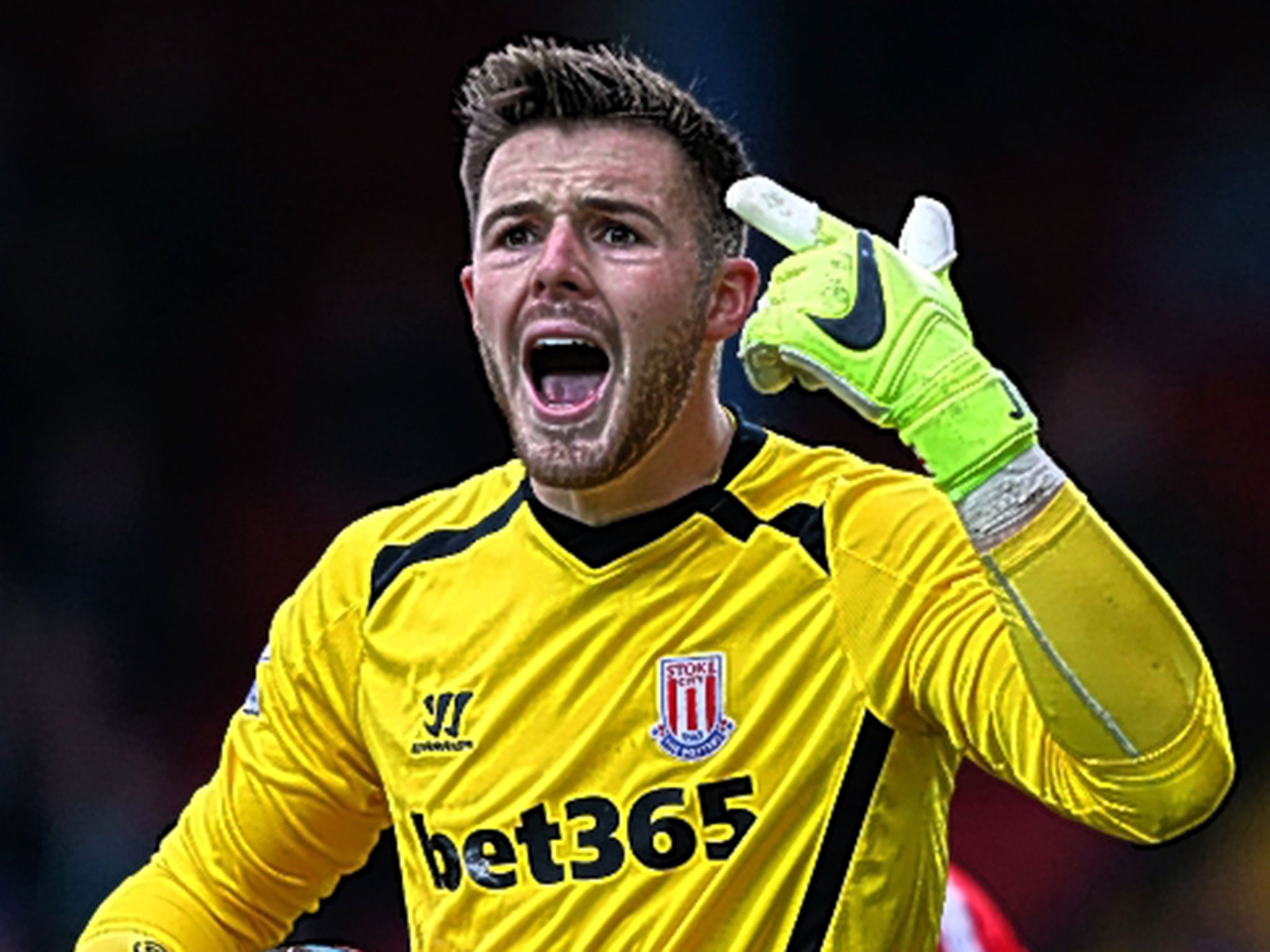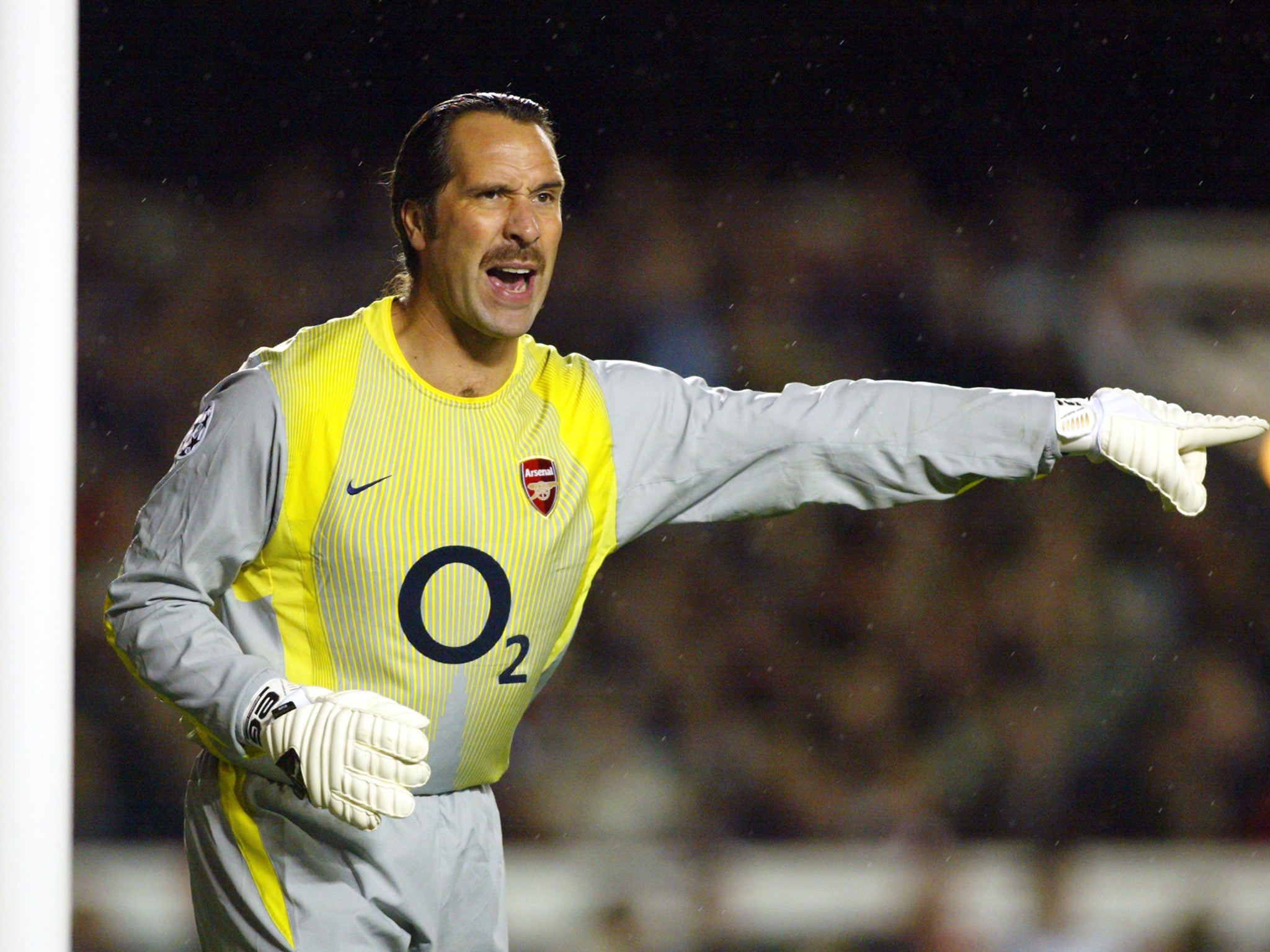Kevin Garside: English goalkeepers are better than ever - they just need the chance to show it
COMMENT: Today only five top-flight clubs have first-choice Englishmen keeping goal

Your support helps us to tell the story
From reproductive rights to climate change to Big Tech, The Independent is on the ground when the story is developing. Whether it's investigating the financials of Elon Musk's pro-Trump PAC or producing our latest documentary, 'The A Word', which shines a light on the American women fighting for reproductive rights, we know how important it is to parse out the facts from the messaging.
At such a critical moment in US history, we need reporters on the ground. Your donation allows us to keep sending journalists to speak to both sides of the story.
The Independent is trusted by Americans across the entire political spectrum. And unlike many other quality news outlets, we choose not to lock Americans out of our reporting and analysis with paywalls. We believe quality journalism should be available to everyone, paid for by those who can afford it.
Your support makes all the difference.It is a bold move to assert the health of English goalkeeping in an era when there have never been fewer sons of England in the Premier League. Yet that is the view of the England Under-21 goalkeeping coach and Football Association head of goalkeeper coach education, Martin Thomas, who claims the spread and depth of English talent between the sticks has never been greater.
Martin is one of many keynote speakers at St George’s Park today addressing all aspects of the art at the FA’s 2015 Goalkeeper Conference.
The gathering, you might think, ought to be a wake, lamenting the decline of standards in a position once dominated by the English. It was the glovemen to whom we appealed to retain what esteem we could as football’s mother country when the quick feet and intelligent movement of our European neighbours and South American cousins took the game beyond us.
After the brilliant Gordon Banks, who made arguably the greatest save of the television age to deny Pele in Guadalajara in 1970, came Peter Shilton, England’s most capped player, and Ray Clemence. Beyond those twin pillars in the early days of that dim and distant decade when English football sank deeper into the abyss we could still look up and down the old First Division and be certain that the last line of defence was as good as any in the world: Peter Bonetti at Chelsea, Gordon West at Everton, Alex Stepney at Manchester United, Joe Corrigan at Manchester City, Phil Parkes at Queen’s Park Rangers.
The tradition was maintained by the likes of David Seaman at Arsenal and Chris Woods at Sheffield Wednesday. Today only five top-flight clubs have first-choice Englishmen keeping goal. But cast your gaze wider and the picture is reversed. In the 72 clubs in the three divisions beneath the Premier League, more than 50 are English and only 12 non-British.

It is the contention of Thomas that these men are better coached, better prepared, fitter, healthier, stronger and more aware of the space around them than any of their famous forebears. Though today’s keepers are no more blessed innately, improvements in our understanding of training methods, technology and the way the game is played have led to a commensurate upswing in efficiency and capability. So where is the English David De Gea or Thibaut Courtois?
He’s here, claims Thomas, all that is required to bring him into the light is opportunity, making proposals for a phased increase of home-grown players from eight to 12 in squads of 25, starting next year, a necessity.
Thomas was given his chance at Bristol Rovers at 17 and had racked up 100 appearances before the age of 20, still the youngest in England to reach that landmark. The average age for goalkeeping debuts in the lower divisions is 18. In the Premier League, where managers and coaches are more risk-averse, it is 24.
“People say there are no English keepers. The problem is everybody sees the Premier League as English football,” Martin says. “The Premier League is not even English, the make-up of the division is international. In the Championship, Leagues One and Two, there are a stack of young English keepers getting exposure.
“The challenge is to reach the Premier League, and that is about opportunity, which applies to all positions, not just goalkeepers. Hopefully, that is being addressed through regulations but it is up to the law of the land where that goes.”
The loan deal remains the preferred mechanism for developing young keepers at top clubs. Joe Hart went to Tranmere, Blackpool and Birmingham before returning to Manchester City. Ben Foster had spells at Tiverton, Wrexham and Watford while waiting for a space to open at Manchester United. Tom Heaton found his way to Burnley via a clutch of loans from Old Trafford. At 29 he is finally able to prove himself in the Premier League, yet the talent was always there.
“When was he good enough?” asks Martin. “He was always good enough but had to face opposition from the best goalkeepers in Europe, who are all desperate to play in a league that offers them the best of everything.”
England Under-21 keeper Jack Butland is currently in the queue behind the excellent Asmir Begovic at Stoke. “Jack is 22. He has to be patient. When he gets the opportunity I’m sure he will take it,” Martin says. “He has a big summer ahead with the Under-21s. He’s our skipper and a huge, huge talent.”
Thomas also gives a shout to Angus Gunn, 19, at Manchester City and Freddie Woodman, 18, at Newcastle United, the age Clemence was when he signed for Liverpool from Scunthorpe. Imagine what might be achieved were clubs like Liverpool to take that kind of punt today.
Join our commenting forum
Join thought-provoking conversations, follow other Independent readers and see their replies
Comments